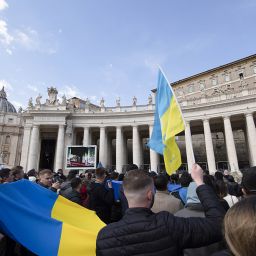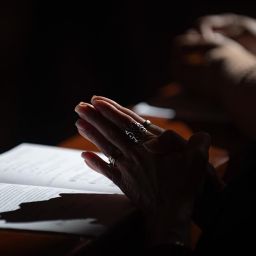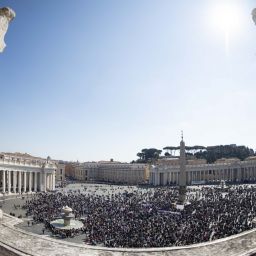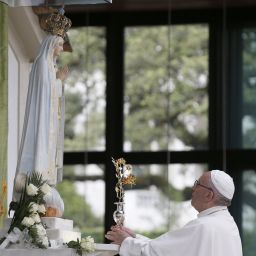
By Father Thomas Esposito, O.Cist.
Special to The Texas Catholic
The Polish poet Czeslaw Milosz, winner of the Nobel Prize for literature in 1980, declared in a book of prose that “the Scriptures constitute the common good of believers, agnostics, and atheists.” For Milosz, whose life was scarred by the Nazi and Communist takeovers of his native land, the moral authority and literary beauty of the Bible was a refuge against the lethal and banal propaganda spewed forth from those godless governments and armies, even though he could not bring himself to believe in God.
I came across the quote in a brilliant book by the journalist Clive James called “Cultural Amnesia: Necessary Memories from History and the Arts.” In the chapter dedicated to Milosz, James elaborates on the resonance of Milosz’s insight, noting the remarkable fact that non-believers can respect, and even find comfort in, the elegance of the language employed by the ancient translators of Holy Writ. But his meditation takes savage and delightful aim at recent translations of the Bible that dilute the majestic Word of God by rendering it into current slang and dumbed-down verbiage. Having been nourished as a child on the elevated majesty of the King James Version, James laments the “clumsy adaptation to the modern world” of the new versions.
That James is not a believer is precisely the point here. His critique of insipid Bible translations should be read with trepidation by those scholars and preachers who think that the faithful want the same pedestrian talk in prayer and the pulpit that they hear in the world:
“Those of us brought up as Protestants, but who later lapsed, found out, when the doors closed behind us, that we hadn’t lapsed quite as far as we thought. We had lapsed into unbelief, but not into stupidity, and the spectacle of our one-time cradle rocking to the clappy-happy rhythms of half-witted populism was a betrayal of something that had once impressed us at least enough to invite rebellion. I don’t want the teachings of Jesus taken from me. He might no longer be my redeemer, but he is still my master. If I no longer know that my redeemer liveth, I know that he speaketh not like Tony Blair. It is true that Jesus never spoke the language of the King James Version of the New Testament. But the language of the King James Version is of a poetic intensity congruent with the impact Jesus must once have made on simple souls, of whom I am still one: simple enough, anyway, to need my sins forgiven.”
James’ reflection reminded me that language is a God-given portal into the mystery of Christ’s love; it is the Word, after all, who becomes flesh, dwells among us, and pours out his love for us on the cross. The story of our salvation, embodied in the risen flesh of Jesus, is captured for us in written form by the evangelists. In the transcendent simplicity of the Gospels, even atheists and agnostics perceive the consolation of divine love; biblical and liturgical language thus has the duty to uplift the soul, not to distort or cripple it with cheap platitudes.
Holy Week is the optimal time to ponder the immense beauty of the Gospels and the liturgical texts that animate the Church’s life. If you have a venerable translation of the Bible, whether the KJV, the Douay-Rheims (the Catholic response to the KJV), or the Knox Bible, read through the Passion Narrative of Luke or John, and allow yourself to be moved by the solemn cadence of each syllable. Listen also to the Gregorian chants for the various Holy Week liturgies, including the Ubi caritas of Holy Thursday, the Ecce lignum crucis of Good Friday, and the incomparable Exsultet of the Easter Vigil. These hauntingly beautiful melodies, paired with gorgeous Latin verse, convey both the seriousness and the joy of the Easter message, a salvific word for believers and non-believers alike.
Father Thomas Esposito, O.Cist., is a monk at the Cistercian Abbey of Our Lady of Dallas and teaches in the theology department at the University of Dallas.















